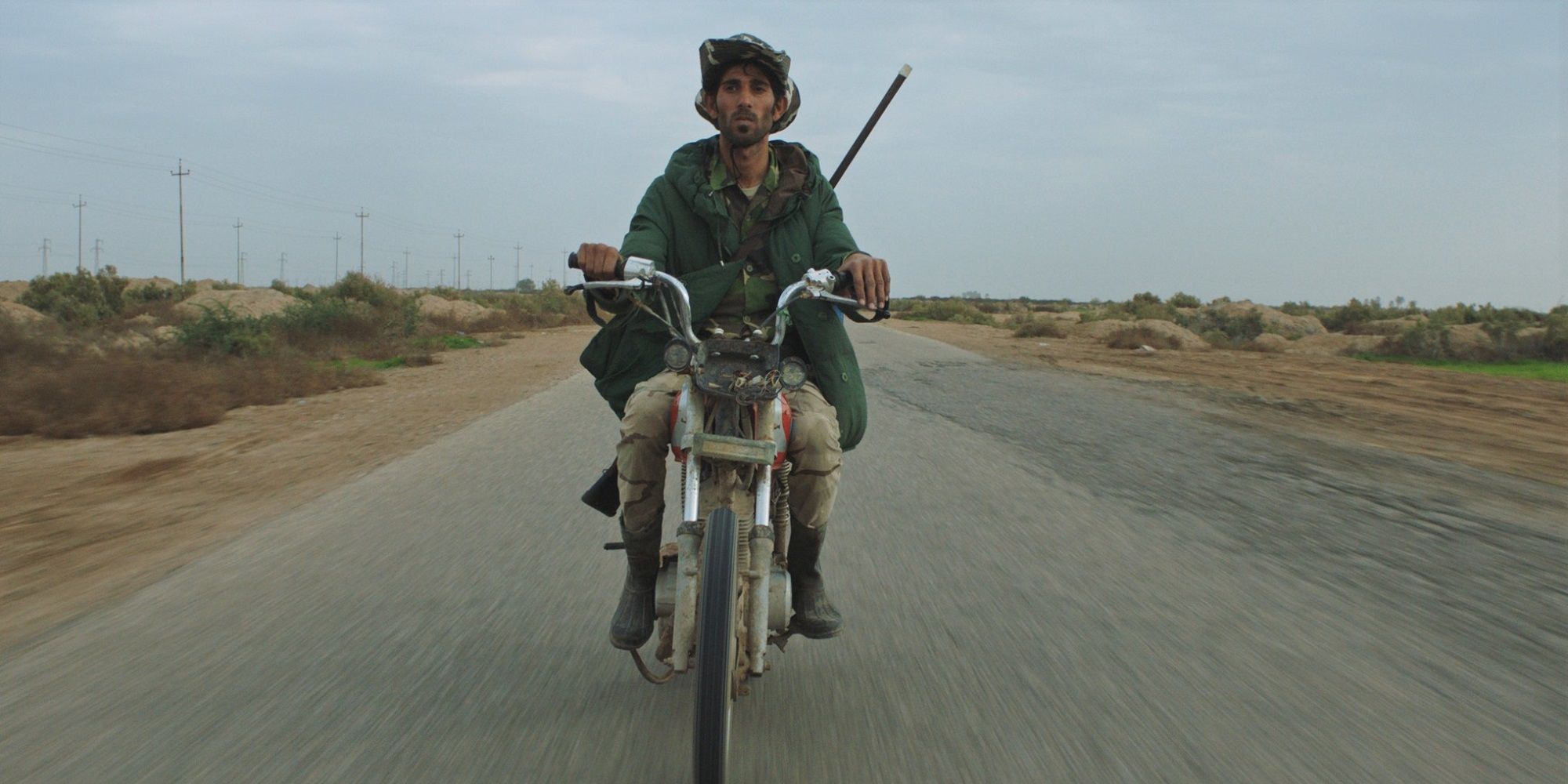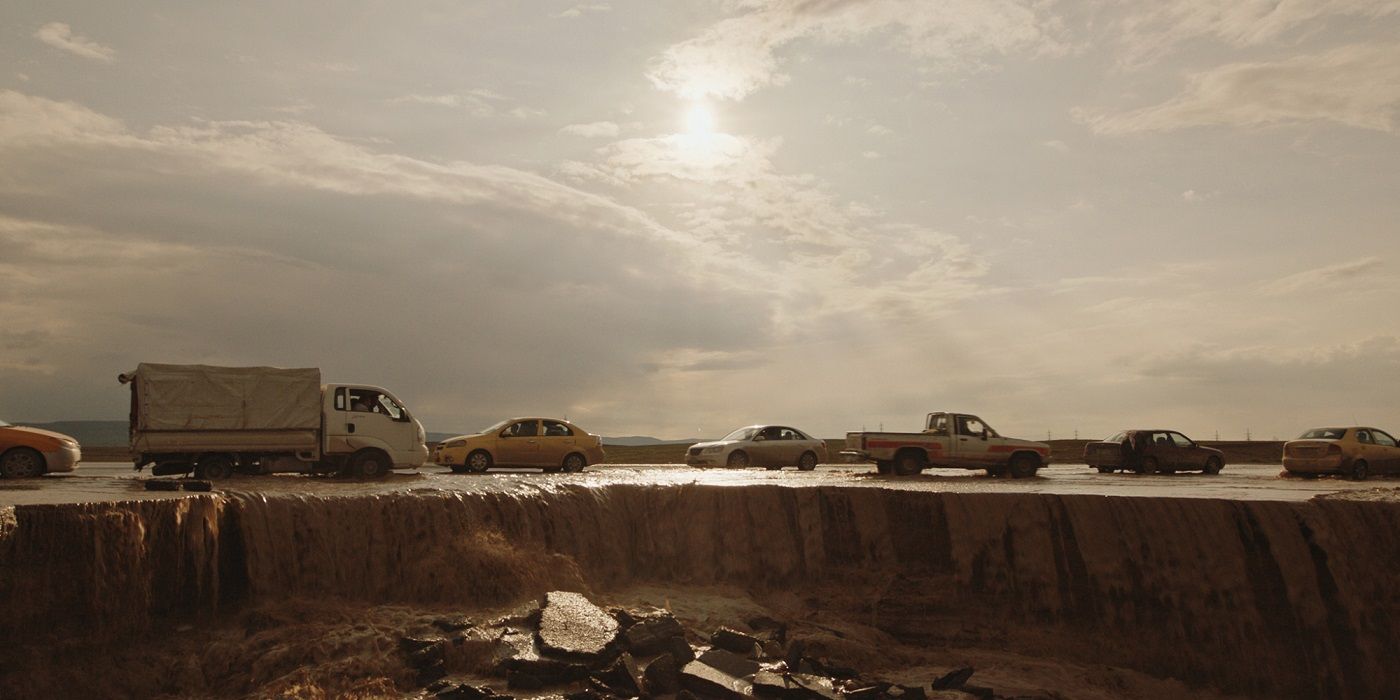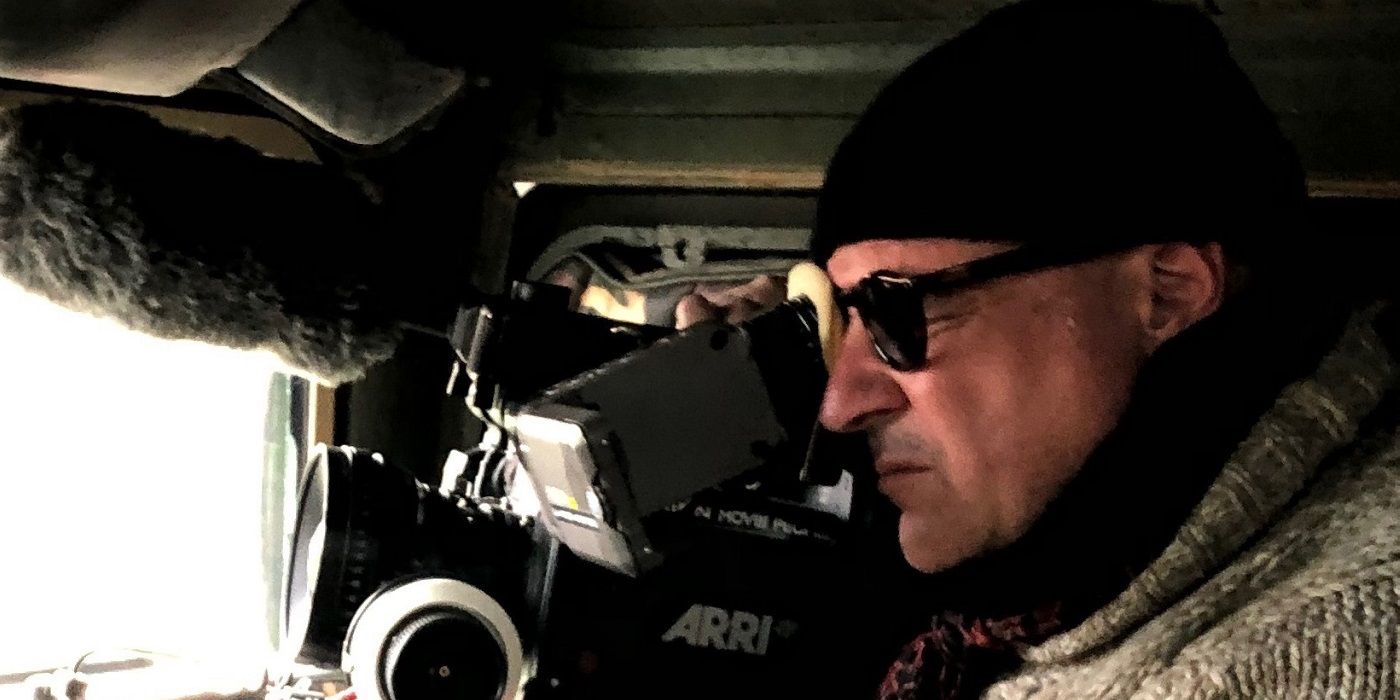Filmed over the course of three years, Notturno traverses across the borders of Lebanon, Syria, Kurdistan, and Iraq. Directed by Gianfranco Rosi, the film captures a multitude of stories from throughout the region and edits them into vignettes that, together, paint a picture of pain, loss, and trauma that largely stems from ISIS’ (known as Daesh in the Middle East) torment of the Middle Eastern civilians. Notturno is sometimes beautiful and Rosi makes good use of private spaces. But, the film comes off as an exploitation of the region and its people’s pain.
Notturno intimately captures a woman’s grief following the imprisonment, torture, and death of her son; civilians rehearse for a play about what has been done to their homeland; soldiers walk the perimeter or jog together as a synchronized unit at dawn; children talk through their trauma to a child psychologist; a man rows his boat on a lake; a young couple enjoy each other’s company on the rooftop while distant gunfire is heard in the background. It's life's moments at its most personal.
Rosi employs silence as a way to explore the routine of the people he films. The silence isn't necessarily uncomfortable, but it does allow for a more intimate study of the region. Rosi has a tendency to linger during every scene, which allows the audience to sit with the children who are so factually relaying their experiences to the gently questioning psychologist and with the crying mother who listens to her daughter's harrowing voice messages on a loop, as though a lifeline despite how increasingly desperate they become. The devastation of war is shown onscreen in a way that is personal and signals the daily affects that ISIS has had on civilians.
However, therein also lies the problem with Rosi's filmmaking. Knowing that he is not a native to the region he has turned his camera to is unsettling in that he, like so many western filmmakers have done in the past, is only able to capture the pain and suffering of Middle Eastern people. Notturno may be focused on the region's people, but its message plays out more like an outsider reading about ISIS from the headline of a newspaper article. Rosi's vignettes quickly turn redundant and the scenes, specifically chosen to drill the message of trauma and misfortune, fail to fully capture and explore the intricacies of life and the people who live it.
This is exemplified by the fact that the audience never learns any of the people's names and they're explored through a lens that doesn't offer them their own perspectives. Who are they? What is their inner life like outside of the scenes Rosi chose to include for his film? Without a deeper look, Notturno comes off as trauma porn, with Rosi unwilling to see beyond the suffering, thus limiting the film's scope and understanding of the region. While Rosi’s style of documentary filmmaking is certainly unique, scenes often play out like they were staged as such, making it hard to grasp what is real and what is for show.
Notturno is also quite tedious to get through. Interestingly, as the film finds its pace, it also becomes more monotonous and repetitive. There are indeed moments of beauty and the cinematography can be captivating, but the singular moments merely act as a superficial glance into the region rather than as a richer depiction of it. Can non-Middle Eastern filmmakers make films that are not solely based on the endless suffering or demonization of the region? Maybe, but it's clear Notturno doesn't fully understand the area enough to offer anything more compelling and complex.
Notturno will release on demand and be available to stream on Hulu on January 29, 2021. The film runs 100 minutes and remains unrated for now.
Let us know what you thought of the film in the comments section!



